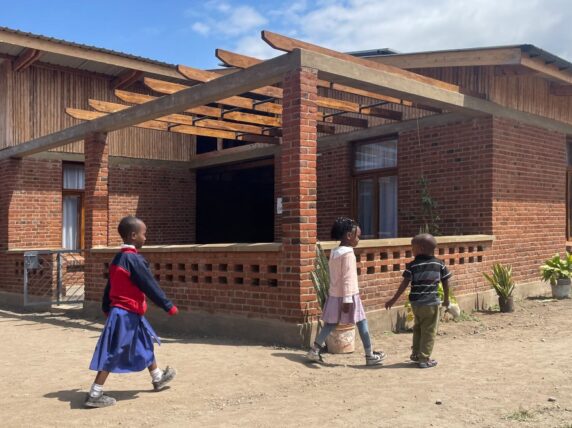It’s time to move from intention to practice and embrace equitable partnerships
The place of power in development systems has been a source of introspection for a number of years. More so now with issues of de-colonisation and anti-racism prominent in the public discourse.
While addressing our own personal privilege requires a change of heart and actions, addressing organisational privilege requires a change in systems and culture.
The Bond Partnership Approaches Group recently held a webinar on the topic “How to change organisational culture to embrace more equal partnerships?”. Here are some of my key take aways.
Change can’t happen unless relationships & connections, power dynamics, and mental models evolve too
As Smruti Patel, Co-Director of Global Mentoring Initiative, explained there are concepts we know in our hearts to be true, but maybe haven’t found the words to articulate and sometimes feel powerless to change. This is particularly true when we look at the “six conditions of system change” — policies, practices, resource flows, relationships & connections, power dynamics, and mental models.
Organisations can sometimes fool themselves into thinking change has happened when they have completed the first three (explicit structural changes) and not address the more intractable (semi-explicit) changes in relationships and power dynamics nor the implicit transformative changes brought by new mental models.
The last three are the “heavy lifting” of organisational change and can be uncomfortable to lean into as we address our own biases and blind spots. Smruti characterised some of these difficulties through the image of an iceberg, where the way we think things get done is the bit sticking above the water (vision, strategy, policies) but the way things actually get done are below the surface and not readily visible (beliefs, perceptions, values, feelings).
Are we without hope to change? Definitely not. The balance of Smruti’s opening focused on practical areas where we can address changing our organisational cultures to be more equitable partners, places to look and frameworks for conversations. The feeling throughout is that this should be a process, a continuous internal conversation with ourselves that feeds into an external conversation with those we work with.
What could an equitable partnership look like?
Annalisa Renna, Head of Operations for Integrity Action, gave us some valuable insight into their journey to form more equitable partnerships. While intentional, there was no magic formula for embarking on this journey. Actions were important, but they flowed from humility and a commitment to question the status quo. It was clear from Annalisa’s talk that we need to look for all the opportunities we can to shift culture, from induction, through programme development, internal communications, and performance appraisals.
Subscribe to our newsletter
Our weekly email newsletter, Network News, is an indispensable weekly digest of the latest updates on funding, jobs, resources, news and learning opportunities in the international development sector.
Get Network NewsIt also requires a look at how partnerships are formed, maintained, and exited. Partnerships should take a cue from the Golden Rule and treat others as we would like to be treated. What terms and conditions are in our grants agreements and how do we seek compliance? Similar to the case for reciprocity in security management, do we transfer administrative burden and programme risk to partners or do we engender a sense of reciprocity and sharing?
Annalisa critically also asks, are we consistent in our approaches? Do we treat small organisations with the same level of respect and trust that we do for large organisations? Do we assume a biased view of smaller organisations and therefore ask for more assurances than we would of larger organisations? Another key element of this journey is to open the channels of dialogue to receive and provide feedback between partners. One way that Integrity Action is doing this is via an annual partners survey.
Lisa Reilly (Executive Director of the Global Interagency Security Forum (GISF) shared her reflections on security risk sharing as a key place to address equitable partnerships. In her talk, Lisa asked some critical questions around whether we are transferring risk to our partners or finding ways to share these risks. Do we provide two standards when it comes to security – one for our own staff and one for our in-country partners? Do we co-develop acceptable risk thresholds? Conduct joint risk assessments? Support each other in risk mitigation? Or do we not even have the discussion? Do we turn a blind eye to subconsciously provide a “plausible deniability” when it all goes wrong?
To enter these fundamental discussions requires an understanding of our own culture, biases and priorities. It also forces us to confront what we mean by partnership – are we engaging in a purely transactional sub-contract or are we coming alongside with a shared vision for change?
Putting good intentions into practice
Finally, it would not be a discussion on equitable partnerships without the perspective of an in-country organisation. Josephine Habba, National Coordinator and Founder of Jireh Doo Foundation (JDF), provided support for the points already made with real-world examples from her own experiences of growing a grassroots organisation. Trust, communication, mutuality, and equity are themes we largely understand, but how often do we see them in practice? What is stopping us from taking time to build relationships and the intentional, sometimes difficult, work, this involves?
Circling back to the six principles of change from the introduction, we can sometimes do well at the explicit pieces (policies, practices, resource flows) but not recognise the need for the more implicit work (relationships, connections, power dynamics, and mental models). With only a surface investment in our partnerships, Josephine highlights that we can shift into extractive cultures of blame, poor support, bad communication, and limited opportunities for expression. An enduring example Josephine provided relates to the common capacity strengthening practice of providing partners with training. While training is good and sometimes necessary, accompaniment and learning together while doing is will truly build capacity for everyone, not just one side or the other.
Equitable partnerships can only begin when we understand and commit to equity across our relationships, personal, professional, and organisational. Organizations are not sterile machines that operate via objective software. Rather, they are made up people who come with their own biases and attitudes.
While we can put into place a range of organizational policies and procedures to try and shift to more equitable partnerships, true lasting change comes after personal introspection, culture shifts only after humbly recognising our own bias. But from this we can begin the journey from trying to make change happen to helping others become agents of their own change.
Category
News & Views



